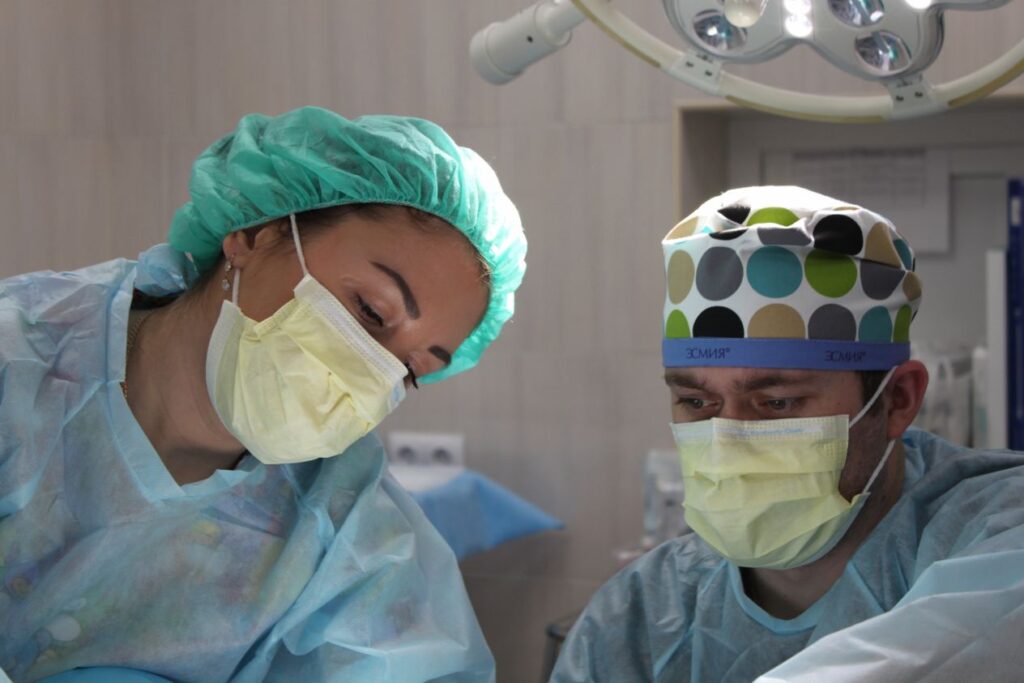We go over the various paths to nursing licensure in the UK without formal education in this article.
A-Levels are not mandatory for a nursing course, UK citizens should know that they must obtain a Level 3 Diploma in Nursing in the UK in order to earn a university degree. So, is it possible to become a nurse without a university education?
In order to become a registered nurse, candidates must complete relevant training up to level 6 (degree level), which is not possible without attending a conventional, full-time university. Alternative paths to becoming a nurse include the nursing associate program or a degree-level apprenticeship.
Continue reading to find out more about how to become a nurse and how to keep growing after you graduate.
How to Become a Nurse Without Qualifications?
Here are six steps you can follow to become a nurse even if you don’t major in nursing during your undergraduate career:
Enroll in An Accelerated BSN Program
Enrolling in an accelerated BSN program is the first step in trying to become a nurse without a nursing major. All registered nurses must hold either an associate’s or bachelor’s degree in nursing, but if you already hold a bachelor’s degree, you don’t need to worry about repeating your college coursework.
Many colleges now provide accelerated programs for students who are not nursing majors, allowing them to complete all necessary coursework, labs, and clinical hours quickly. Depending on the university, accelerated BSN programs may last 12 to 18 months.
Complete Clinical Hours
You will probably have lots of chances to complete clinical hours while pursuing your accelerated bachelor’s degree. All aspiring nurses are required to complete clinical hours in which they interact with and care for actual patients in clinics, hospitals, and doctor’s offices.

Students frequently participate in rotations, which give them the chance to gain experience in various medical specialties and departments.
Particularly if you are a new nurse, the time you spend finishing your clinical hours is very valuable because you can network with doctors, other nurses, and other medical professionals who you will be interacting with frequently while working.
Take the NCLEX-RN Exam
You must take and pass the NCLEX-RN exam to continue on your path to becoming a nurse without a nursing major. To advance in their careers and become eligible for state licensing to practice, registered nurses must pass this exam.
You should be prepared for the exam, which emphasizes your capacity to apply critical thinking in typical nursing situations, by your accelerated BSN program by receiving the knowledge, instruction, and experience required to pass.
The National Council of State Boards of Nursing (NCSBN) accepts registration applications from potential candidates.
Create Application Materials
The next step after passing the NCLEX-RN is to apply for your state’s nursing license. Check the requirements in your state to make sure you’re providing the right paperwork and fees.
Working on your resume and cover letter for a job application is also a great idea at this time.
To give employers the most accurate picture of your qualifications and experience in the nursing field, you should include your contact information, a professional summary, work experience, pertinent skills, academic background, and certifications on your resume.
Organize An Employment Network
A great way to find support, and resources, and work as a nurse is by building a strong network of medical professionals. Keep in touch with your professors, fellow students, coworkers, personal doctors, and anyone else you believe can introduce you to useful information or opportunities.
You can stay in touch with these people via social media, telephone, email, or job networking websites where you can post updates throughout your professional development.
Apply for Jobs
Applying for open positions in your field is the last step in making the transition from another career to nursing. At Indeed, you can look for open positions by geo-filtering and asking your professional network.
To get a second opinion and make changes, think about sending your resume and cover letter to a nurse from your professional network. By researching typical nursing interview questions and practicing answers to some of the most typical, you can prepare for interviews.

How Long Does It Take to Become a Nurse in the UK?
If you are starting with just GCSE qualifications, you will need the following courses to become a Nurse:
- Access to HE Diploma in Nursing UK: minimum 6 months – maximum 2 years
- Full-time nursing degrees last 3 to 4 years
- Part-time nursing degrees can be spread across 5 or 6 years
It can be considered relevant learning if you already have a graduate degree in the sciences. As a result, you can enroll in accelerated programs and finish your nursing degree in two years.
If and how much of your accreditation can go towards the nursing degree of your choice, will be down to the higher education institution you choose to gain the qualifications needed to be a Nurse.
What Qualifications Do You Need to Be a Nurse?
A degree in nursing is required for those who want to become nurses, whether they do so through a traditional full-time degree program, a flexible apprenticeship program, or the nursing associate program.
But as different institutions do, each of these routes will have unique entry requirements. Commonly, though, this will be:
In England, Northern Ireland, and Wales:
- A minimum of 5 GCSEs at A-C (9-4) including Maths, English, and Science
- A minimum of 2 A Levels or equivalent (some institutions may ask for Biology or other Science subjects)
In Scotland:
One of the following
- 3-5 SQA Highers, plus 2 standard grades/National 5’s, including Maths and English
- A relevant HND/HNC, plus Maths and English at National 5 level
- Completion of a relevant Scottish Wider Access Programme (SWAP)
